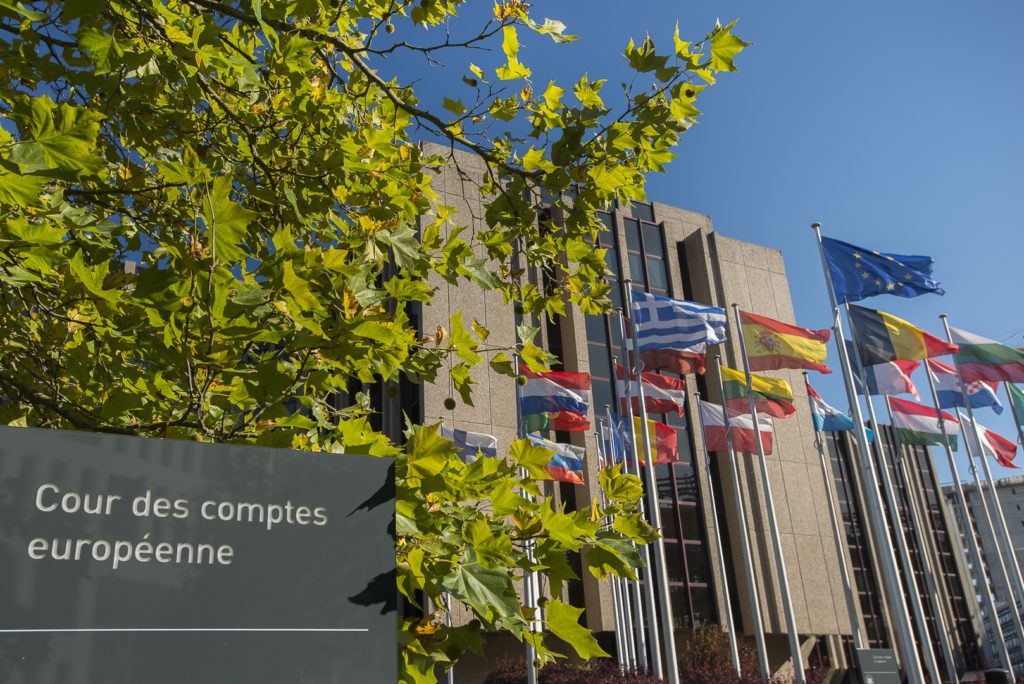The European Court of Auditors (ECA) has given a clean opinion on the reliability of the consolidated financial statements of the EU for 2015, as they have done for every year since 2007. The opinion is part of ECA’s statement of assurance in its annual audit, published yesterday (13 October), of the implementation of the EU budget for 2015.
The annual report, which is basically a financial audit of the reliability, legality and regularity of the accounts and the underlying revenue and payment transactions, serves as a basis for the discharge procedure in the European Parliament. The Parliament, after a recommendation of from the Council, decides whether the Commission has carried out its responsibilities for implementing the budget.
Klaus-Heiner Lehne, the new ECA President, has warned that the European institutions have, to a degree, lost the trust of EU citizens. Speaking at the presentation of the 2015 annual report to the Budgetary Control Committee of the European Parliament, he said that, in the months and years to come, a major challenge for the EU would be to regain that trust.
Lehne told MEPs it was clear that there should be reform, but that whatever shape that reform took, it had to be built on solid financial foundations. That meant the EU had to keep good accounts; it had to make sure its financial rules were correctly applied; it had to deliver value for money, and it had to provide transparency and assurance.
“People cannot even begin to trust the EU institutions if they do not believe we are looking after their money properly and keeping a good account of how we are doing that,” the ECA President said.
From this point of view, ECA’s statement of assurance is not totally clean. While the EU auditors conclude that the collection of EU revenue was free from error, they estimate the level of material error for expenditure at 3.8% (compared with 4.4% in 2014). Although this is not a measure of fraud or inefficiency, it indicates that the money has not been spent in accordance with EU rules.
Asked by The Brussels Times about the contradictory parts of the statement of assurance, EU auditors replied that the statement deals with two different things.
“The clean opinion relates to the recording of money in and money out. The two flows were accurately recorded. That is a question of compliance. The level of error refers to the transactions underlying spending (outward flows) and whether they have followed the relevant rules and regulations. That is a question of regularity.”
The auditors continue to find nearly the same estimated level of error under shared management with the Member States (4.0 %) as for expenditure managed directly by the Commission (3.9 %). The materiality threshold is 2 %, an error level that seems impossible to reach.
The report emphasizes that a major influence on the level of spending errors is the difference between “reimbursement” schemes, where the EU refunds eligible costs on the basis of declarations made by beneficiaries, and “entitlement” schemes, where payments are made for meeting conditions. Reimbursement of costs is linked to a much higher level of error (5.2 %) than spending on an entitlement basis (1.9 %).
The ECA auditors explained to The Brussels Times that in general entitlement schemes are less complex than reimbursement schemes. “For entitlement schemes you have to prove in advance that you are entitled to the payment while reimbursement schemes typically involve submitting a great deal of paperwork afterwards in justification. Simplified cost rules should mean fewer errors.”
Corrective action by authorities in the Member States and by the Commission did have a positive impact on the estimated level of error, say the auditors. But while steps have been taken by the Commission to improve its assessment of risk and of the impact of corrective actions, there is still scope for improvement.
A significant number of errors could have been prevented, detected or corrected before the related payments were made. In addition, despite a reasonable overall level of awareness of the auditors’ recommendations to the Member States, there is a wide variation in the level of formal follow-up. The auditors see only moderate evidence of changes in policy and practice at a national level.
What should EU do to reduce the error rate even more or is this not possible?
“The good news is that corrective action by authorities in the Member States and by the Commission had a positive impact on the estimated level of error. Otherwise it would have been above 4 %,” the EU auditors say. “Recovering enough money to get the error rate below two per cent would be a laudable achievement. But we continue to believe that prevention is better than cure.”
“It would be much better for the European taxpayer if the Commission and the Member States spent more of the money properly in the first place, rather than having to go to the time, trouble and expense of clawing it back after mistakes have been found.”
ECA’s annual report includes also the findings in the special reports during the past year, dealing not only if the money was spent according to the rules but also if it was spent and used well in accordance with the principles of sound financial management. Since 2010, ECA reports on the performance of a certain expenditure area – this time on EUs flagship research programme Horizon 2020.
M. Apelblat
The Brussels Times
EU watchdog signs off EU accounts but gives adverse opinion on regularity of payments

